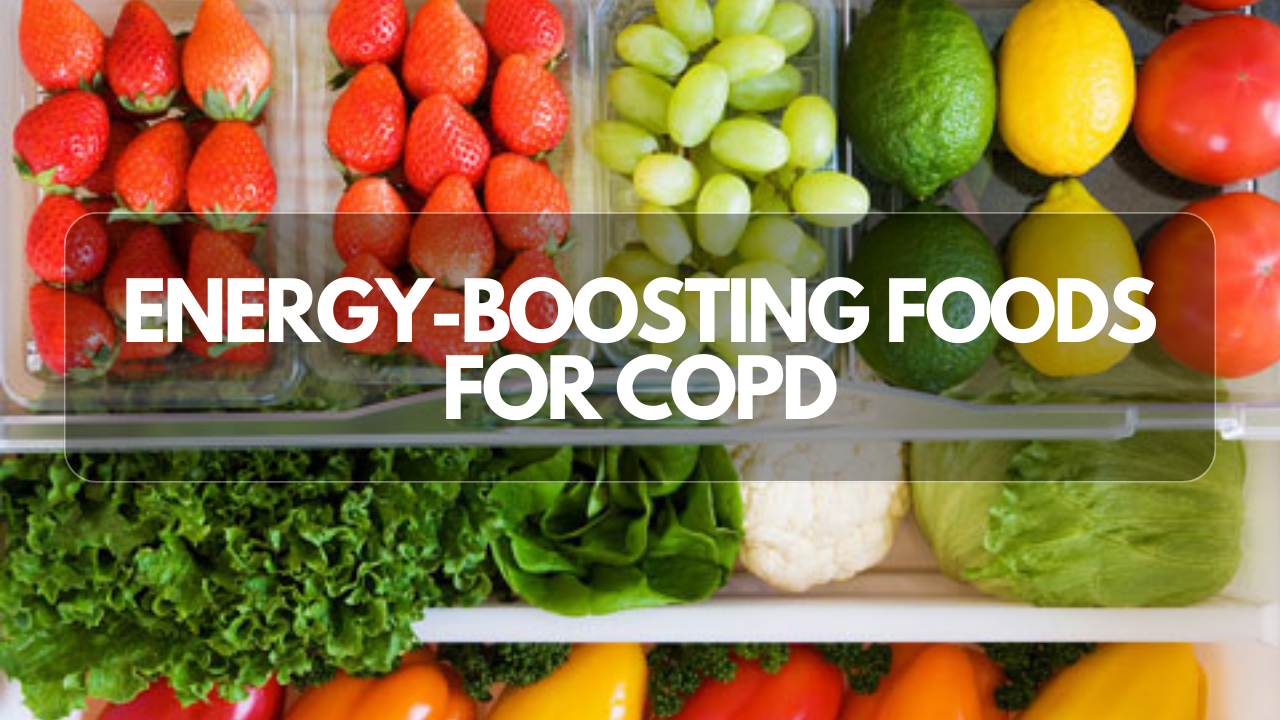Living with Chronic Obstructive Pulmonary Disease (COPD) can present various challenges, including managing fatigue and maintaining energy levels. Proper nutrition plays a crucial role in supporting overall health and well-being for individuals with COPD. In this article, we’ll delve into the concept of energy-boosting foods specifically tailored for COPD patients, exploring how these foods can help improve energy levels and quality of life.
The Importance of Nutrition for COPD Patients
COPD is a progressive lung disease characterized by airflow obstruction and difficulty breathing, often caused by smoking, environmental factors, or genetic predisposition. Managing COPD involves a multidisciplinary approach that includes medication, pulmonary rehabilitation, and lifestyle modifications such as dietary changes.
Nutrition is vital for COPD patients for several reasons:
- Energy Requirements: COPD patients often expend more energy due to increased work of breathing and decreased lung function. Meeting their energy needs is crucial to prevent malnutrition and support overall health.
- Muscle Strength: COPD can lead to muscle wasting and weakness, making it essential to consume adequate protein and nutrients to maintain muscle mass and strength.
- Immune Function: Good nutrition supports immune function, helping to reduce the risk of infections and exacerbations in COPD patients.
Energy-Boosting Foods for COPD
When selecting foods to boost energy levels for COPD patients, it’s important to focus on nutrient-dense options that provide essential vitamins, minerals, antioxidants, and energy-producing nutrients. Here are some key energy-boosting foods beneficial for individuals with COPD:
- Complex Carbohydrates: Foods rich in complex carbohydrates provide a steady source of energy and help stabilize blood sugar levels. Examples include whole grains like brown rice, quinoa, oats, whole wheat bread, and whole grain pasta.
- Lean Proteins: Protein is essential for muscle maintenance and repair. Choose lean sources of protein such as skinless poultry, fish, legumes (beans, lentils, chickpeas), tofu, and low-fat dairy products.
- Healthy Fats: Incorporate sources of healthy fats, such as avocados, nuts (almonds, walnuts), seeds (flaxseeds, chia seeds), and olive oil. These fats provide energy and support heart health.
- Fruits and Vegetables: Colorful fruits and vegetables are rich in vitamins, minerals, and antioxidants. Include a variety of fruits like berries, citrus fruits, apples, and bananas, as well as leafy greens, broccoli, carrots, and sweet potatoes.
- Fluids: Staying hydrated is crucial for COPD patients, as dehydration can exacerbate symptoms. Aim for adequate water intake and include hydrating foods like soups, smoothies, and watery fruits (watermelon, cucumber).
- Small, Frequent Meals: Eating smaller, more frequent meals can help prevent bloating and discomfort while providing a steady supply of nutrients and energy throughout the day.
Tips for Meal Planning and Preparation
Here are some practical tips to help COPD patients incorporate energy-boosting foods into their diet:
- Plan Ahead: Plan meals and snacks in advance to ensure a balanced intake of nutrients.
- Easy-to-Prepare Options: Choose simple, easy-to-prepare recipes and meals, especially during times of increased fatigue or breathlessness.
- Portion Control: Monitor portion sizes to prevent overeating and discomfort.
- Include Variety: Incorporate a variety of foods from different food groups to ensure a diverse nutrient intake.
- Consult a Dietitian: For personalized nutrition advice, consult a registered dietitian familiar with COPD management.
Conclusion
Energy-boosting foods play a crucial role in supporting the nutritional needs and energy levels of individuals living with COPD. By focusing on nutrient-dense options such as complex carbohydrates, lean proteins, healthy fats, fruits, and vegetables, COPD patients can improve their overall well-being, manage fatigue, and enhance quality of life. It’s important to work with healthcare professionals and nutrition experts to develop a tailored nutrition plan that meets individual needs and promotes optimal health in COPD management.
